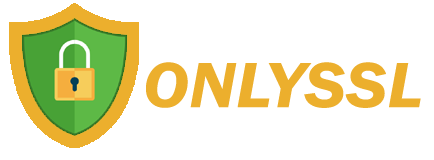8 Best SSL/TLS Certificate Providers in 2024
What Is an SSL Certificate Provider?
SSL/TLS Certificate Providers are organizations that provide digital certificates that enable websites to use the HTTPS protocol to securely transmit data over the internet. These providers authenticate websites by verifying the identity of the owners and encrypting the data during the transfer between the website and the end user.Benefits of an SSL Certificate
SSL helps secure internet connections and prevents malicious individuals from viewing or altering data transmitted between two systems. When you see a padlock icon near the URL in the address bar, it means SSL is protecting the website you are accessing. These are some of its most important benefits:- Increased Security: An SSL Certificate helps to protect sensitive data transferred online, such as credit card information, login credentials, and other personal information, by encrypting the data. This helps to protect against eavesdropping, man-in-the-middle attacks, and other security threats.
- Improved Customer Trust: An SSL Certificate is a sign of trust and reliability. Customers are more likely to trust and purchase from a website if they know their data is being securely transmitted and stored.
- Compliance with Regulations: Most industries require websites to have an SSL Certificate. This is especially required for websites that process payments or store sensitive customer data.
- GoDaddy: Best for Domain Validation SSL Certificate
- SSL.com: Best for Basic SSL from $36.75/yr
- SSL2BUY.com: Best for cheap ssl certificates
- CloudFlare: Best for Free SSL Certificate
Most Secure Web Hosting Providers | How To Test Your Wordpress Site Security | Cheap(Shared) Hosting with DDoS Protection | What Is SHA? (Secure Hash Algorithm)
Top SSL Certificate Providers (Quick Review)
WB Free Trial
1. GoDaddy

4.4

Number of Reviews
 96.1k+
96.1k+
 96.1k+
96.1k+
SSL Users Rating
 4.5
Positive
4.5
Positive
 4.5
Positive
4.5
Positive
Customer Support
 Positive
Positive
 Positive
Positive
SSL Plan from
No data / mo.
SSL Server Locations



2. SSL.com

4.3

Number of Reviews
 871
871
 871
871
SSL Users Rating
 4.8
Positive
4.8
Positive
 4.8
Positive
4.8
Positive
Customer Support
 Positive
Positive
 Positive
Positive
SSL Plan from
$36.75 / mo.
SSL Server Locations
N/A
SSL Plans plans
| Price | |
|---|---|
| $36.75 / mo. | View Plan |
| $48.40 / mo. | View Plan |
| $74.25 / mo. | View Plan |
3. SSL2BUY.com

4.6

Number of Reviews
 957
957
 957
957
SSL Users Rating
 5.0
Positive
5.0
Positive
 5.0
Positive
5.0
Positive
Customer Support
 Positive
Positive
 Positive
Positive
SSL Plan from
No data / mo.
SSL Server Locations





4. CloudFlare

3.1

Number of Reviews
 544
544
 544
544
SSL Users Rating
 2.6
Neutral
2.6
Neutral
 2.6
Neutral
2.6
Neutral
Customer Support
 Negative
Negative
 Negative
Negative
SSL Plan from
No data / mo.
SSL Server Locations










5. OnlySSL

2.6

Number of Reviews
 11
11
 11
11
SSL Users Rating
 5.0
Positive
5.0
Positive
 5.0
Positive
5.0
Positive
Customer Support
 Positive
Positive
 Positive
Positive
SSL Plan from
No data / mo.
SSL Server Locations

6. Comodo

2.2

Number of Reviews
 153
153
 153
153
SSL Users Rating
 2.0
Negative
2.0
Negative
 2.0
Negative
2.0
Negative
Customer Support
 Negative
Negative
 Negative
Negative
SSL Plan from
$87.91 / mo.
SSL Server Locations
N/A
SSL Plans plans
| Price | |
|---|---|
| $87.91 / mo. | View Plan |
| $227.91 / mo. | View Plan |
| $268.46 / mo. | View Plan |
7. DomainHostSSL

2.6

Number of Reviews
 2
2
 2
2
SSL Users Rating
 4.9
Positive
4.9
Positive
 4.9
Positive
4.9
Positive
Customer Support
 Positive
Positive
 Positive
Positive
SSL Plan from
No data / mo.
SSL Server Locations

8. GlobalSign

1.0

Number of Reviews
 5
5
 5
5
SSL Users Rating
 1.6
Negative
1.6
Negative
 1.6
Negative
1.6
Negative
Customer Support
 None
None
 None
None
SSL Plan from
$249.00 / mo.
SSL Server Locations
N/A
SSL Plans plans
| Price | |
|---|---|
| $249.00 / mo. | View Plan |
| $349.00 / mo. | View Plan |
| $522.56 / mo. | View Plan |
HTH.Guide Selected GoDaddy Reviews for Ssl
 Trustpilot User
from Saudi Arabia
Trustpilot User
from Saudi Arabia
Published on: 31/12/2023
"My recent encounter with GoDaddy was exceptionally positive. The platform's seamless domain registration, responsive customer support, and user-friendly interface make it a standout choice. Offering comprehensive services and intuitive solutions, GoDaddy proves itself as a reliable and hassle-free option for managing online domains and hosting."
 Trustpilot User
from United States
Trustpilot User
from United States
Published on: 05/12/2023
"Miriam did a an outstanding job handling my requests. No hassle, she had and took ownership of all I needed help with. She was patient too as the confirmation codes required during the transaction took longer than normal to hit my email during the call. Customer service in general can still seem a bit broken in our post covid world, but everything is working great at GoDaddy with people like Miriam on their team."
 Trustpilot User
from Canada
Trustpilot User
from Canada
Published on: 19/08/2023
"The customer service representative (Aiman A.) Was extremely friendly, professional and prompt to assist me with my issue. The issue was resolved quickly and hassle free. I will strongly recommend this company in the future to others based off this experience."
10 Most Reviewed SSL Certificate Providers in Portugal (Mar 2024)
| Hosting Name | User Satisfaction In % | Number of Reviews | Promotions |
|---|---|---|---|
 SSL2BUY.com SSL2BUY.com |
99% | 926 | |
 SSL.com SSL.com |
97% | 886 | Visit Site |
 Netsons Netsons |
98% | 676 | |
 HostPresto HostPresto |
99% | 657 | |
 Keliweb Keliweb |
98% | 549 | |
 WebhostOne WebhostOne |
98% | 383 | |
 G-Core LABS G-Core LABS |
104% | 269 | |
 myglobalHOST myglobalHOST |
97% | 263 | |
 HostLife HostLife |
96% | 254 | |
 Amen.fr Amen.fr |
80% | 303 |
5 Cheapest SSL Hosting Plans (from $5.22 to $10.00)
| Starting Price | Plan Type | Plan Name | Promotions | Hosting Name |
|---|---|---|---|---|
| $5.22 / mo. | Shared | WordPressL |  HOSTiQ.ua HOSTiQ.ua |
|
| $7.95 / mo. | SSL | Sectigo Positive SSL |  Veeble Hosting Veeble Hosting |
|
| $8.55 / mo. | SSL | Domain: Sectico Positive SSL |  Serverion Serverion |
|
| $10.00 / mo. | SSL | Basic ID SSL |  Cenmax Exim Limited Cenmax Exim Limited |
|
| $10.00 / mo. | DDoS Protection Services | Comodo PositiveSSL |  SSL2BUY.com SSL2BUY.com |
What Is an SSL/TLS Certificate?
Transport Layer Security (TLS) and Secure Sockets Layer (SSL), its predecessor, are both protocols that enable an authenticated and encrypted connection between computers in a network. TLS and its predecessor SSL are encryption protocols that are often referred to as SSL or SSL/TLS. TLS 1.3, the latest version, was released in August 2018. SSL/TLS certificates bind the identity of a website to a cryptographic key pair, which includes a public and private key. The public key, which is part of the certificate, allows a web browser to establish a secure, encrypted communication session with a web server over TLS and HTTPS. The private key is kept on the server and is used to digitally sign web pages, images, JavaScript files, and other documents.What Is the Difference Between HTTP and HTTPS?
The letter "S" in "HTTPS" stands for "secure." HTTPS is an enhanced version of HTTP that utilizes SSL/TLS encryption. Websites with HTTPS addresses have been issued a legitimate SSL certificate by an authorized certificate authority. This ensures that traffic between the site and its users is authenticated and encrypted with the SSL/TLS protocol. To encourage the use of HTTPS, many web browsers are beginning to label HTTP websites as "not secure" or "unsafe." Therefore, not only is HTTPS necessary for keeping users and user data safe, it is also essential for building trust with users. You can test a website for any SSL/HTTPS issues.How Does SSL Encryption Work?
To understand how SSL/TLS works, it is essential to grasp the following principles:- The TLS Handshake, which establishes a secure connection between the two communicating parties and involves exchanging public keys.
- The generation of session keys during the TLS Handshake, which are used to encrypt and decrypt all communications after the Handshake.
- The use of different session keys for each new session.
- TLS authentication of the server, ensuring that the website the user is interacting with is who they claim to be.
- TLS also includes a Message Authentication Code (MAC) to ensure that data has not been altered.
- Lastly, TLS encrypts both HTTP data sent from the user to the website (e.g. clicking, filling out forms, etc.) and the HTTP data sent from the website to the user, which must be decrypted using the appropriate key.







